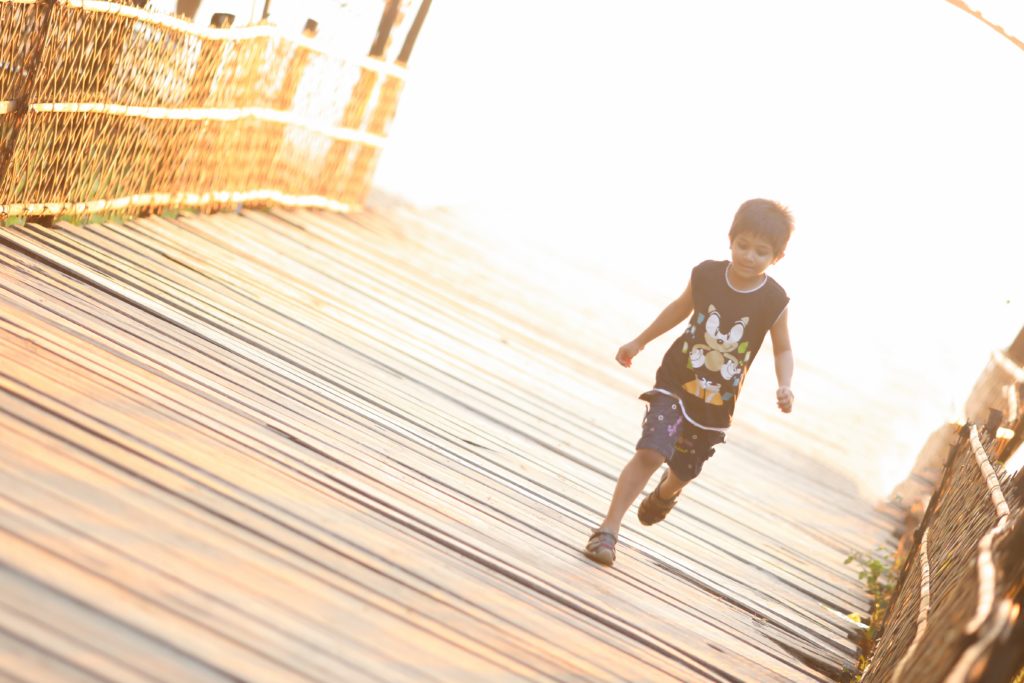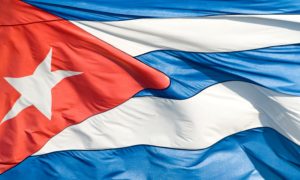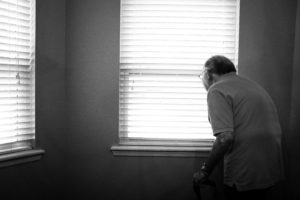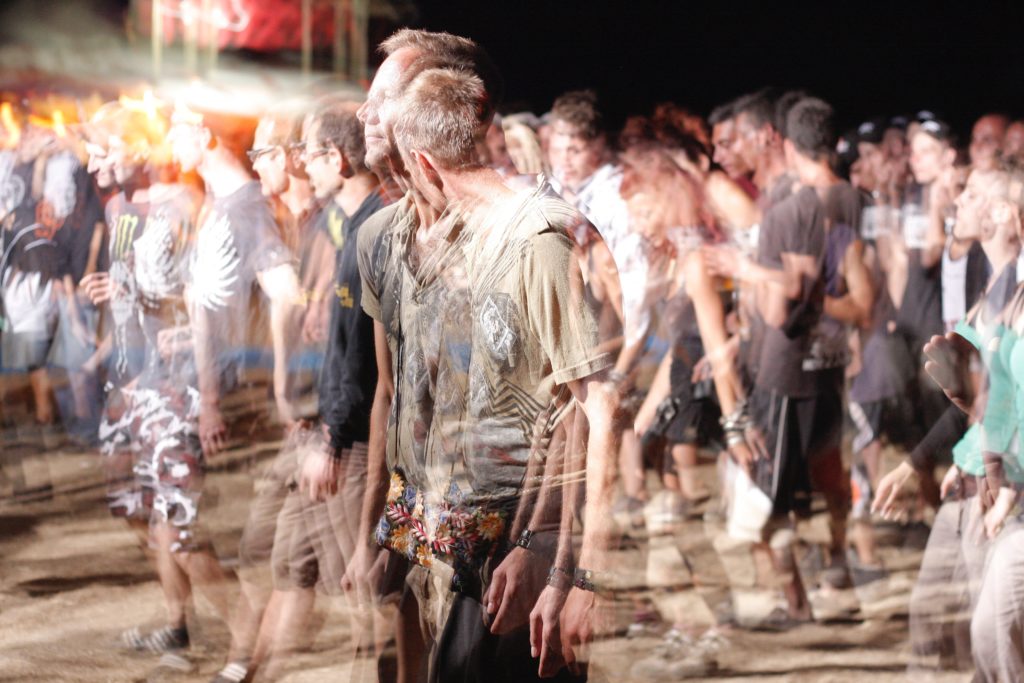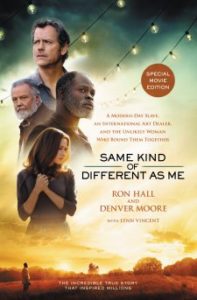I sat on the floor and the Cuban boy came right over to me, smiling wide. He picked up the Fisher-Price shepherd and we tossed it back and forth like a ball. I could not speak his language nor him mine, so I used my face to say the words I couldn’t speak. We cheered and laughed and giggled while his parents learned about money and budgets.
He sat on a small chair and promptly fell off, landing chest first on the floor, his cries filling the room, tears as big as raindrops on his face. His parents raised no alarm as he toddled over to them. They held him and comforted him until his tears subsided.
It wasn’t long before a Haitian mom handed me her baby when filling out paperwork became too cumbersome with the wiggly girl on her lap. The little girl smiled as she sat on my lap, charming a stranger as only babies can. I set her on the floor and she crawled toward the baby doll and put everything she could find in her mouth. I remembered the days when my kids did the same. Another little girl approached, colorful barrettes swinging from her braids. She plopped on my lap, leaving a wet impression on my jeans from the milk she had spilled and sat in earlier. Her finger bled from a small cut. Her mother cleaned her up as I picked up the baby and tracked down a bandage.
We had just recovered from that small emergency when the Cuban boy walked toward me, almost shyly. He held wrapped candies in his hand–one for me, one for him. I took and ate, though I had no idea what I was eating. The spiciness tingled my mouth as I let the candy dissolve. I unwrapped the one for him and he popped it in his mouth, as if he’d done this a thousand times. I feared it would choke him but he rolled the sweet in his mouth without fear. Occasionally, he took it out, letting the sticky sweetness spread from his fingers to everything he touched.
Later, the Cuban friend I met this summer walked in. She smiled wide, hugged my neck and kissed my cheeks. Her family in Cuba lost everything during the hurricane and she does not like to talk about it too much. She misses her grandson more than she can say.
Even the mention of Cuba causes her to place a hand on her heart.
It is home. And she is far from it.
—
The man who lives next door is a monster.
These are not my words but the words of those who would view his crimes and declare him such. I would never say this to his face or call him names but we have done our best to avoid contact with him. He swears at the dogs when they bark–and they always bark at everything–and sometimes treats them not so kind. He throws things in anger and walks through the world as if it is out to get him.
Maybe it is.
I didn’t know it had happened when they drove him away in an ambulance in the middle of the night. We found out almost by accident the next day. A week later I gave his wife a ride to an appointment and when he was released from the hospital two weeks after the heart attack, days after the bypass surgery, they requested my help once again.
He was not fit to drive and she doesn’t drive and would I please drive them both to his follow-up doctor’s appointment? They needed to go downtown to a place I could easily find, and if necessary, I could drive their car. I said a reluctant yes and then prayed for a way out of it. Did I really want this man in my vehicle? It would be the closest I had ever been to him without a fence separating us. I had done what I thought was right, offering them vegetables from our garden through the years, but never had I done anything like this.
When the day came, my anxiety was a slow drip, like coffee percolating into the pot. I hoped I wouldn’t have to go through with it. The woman rounded the fence and said they were ready and I offered my vehicle and drove around the corner to their driveway to pick them up.
“Hi,” I said to the man, whose efforts to get into the van reminded me of my grandfather’s even though the resemblance was nowhere near close. “Hi,” he replied. His movements were slow. Deliberate. I drove with care downtown and dropped them off curbside so they could check in while I parked. By this time most of my anxiety had lessened. I set myself up in a comfy waiting room chair and read until the appointment was over.
They met me in the lobby. I offered to pull the car up but they decided to walk. I made a poor attempt at small talk, mostly just filling the silence with words about the parking garage. Then the man spoke.
“I was standin’ in line and I heard this voice behind me say ‘hey’ and I turned around and it was my brother.” He chuckled and smiled a little and then described what his brother was at the clinic for, adding, “He’s only got one leg.”
We drove back to their house mostly in silence and when I pulled into the driveway to let them out, the woman said “thank you.”
“Yes, thank you,” the man echoed.
He is no longer a monster, just an old man whose days are probably numbered.
—
These are the people I’m “supposed” to hate. The ones I’m told to fear. The ones with varying shades of brown skin and languages that are different than mine. The ones whose past deeds are terrifying and shocking, whose demeanor leaves much to be desired. The ones most of us look past or around or over.
When I look closely, though, and when I listen, I find the common threads. The woman from next door, she tells me of the family hurts and how she has a brother dying at the same time her husband is hospitalized. She shows me around her house as I help haul the groceries from the food bank inside. She speaks with pride of her home, and even the dogs generate some sympathy from me. They still bark, but I am less cranky about it.
I am growing weary of division even though I know I am guilty of creating a divide. I am forever trying to place myself in a category so I can be an “us” and not a “them.” It is tiring. I cannot bear it in myself–not in my life. And I am increasingly less patient with it at the government level.
I am grateful to have been born in this country but I had nothing do with that, and I will not withhold its benefits from those who are deemed less deserving, less worthy, less lovable.
No law or principle or speech or order can convince me otherwise.
I am an American citizen, but I live on the earth and humanity is a common bond whether we admit it or not.
There is no “them” when it comes to humanity. There is only “us.”
—
That is not to say we are all the same, but it should not be our differences that divide us.
In the words of a man who was once a slave and then homeless, whose life changed a community and whose story is now widely known:
I found out everybody’s different – the same kind of different as me. We’re all just regular folks walkin down the road God done set in front of us. The truth about it is, whether we is rich or poor or somethin in between, this earth ain’t no final restin place. So in a way, we is all homeless – just workin our way toward home.”
― Denver Moore, Same Kind of Different as Me
